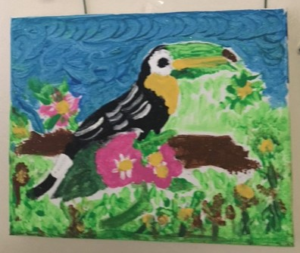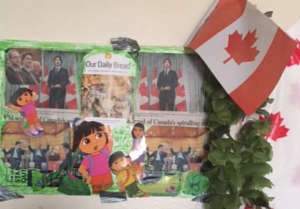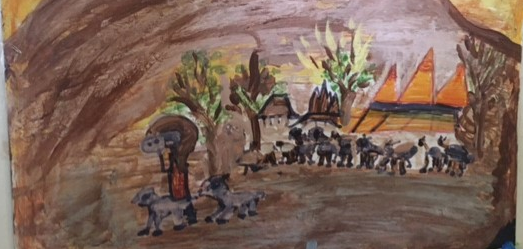“A kind gesture can reach a wound that only compassion can heal”. This quote has always motivated Shakira Quraishi in her work helping disadvantaged clients to improve their living.
Hamida, like many CultureLink clients, came to Canada as a Government-assisted refugee. She has been living with mental health issues and post-traumatic stress disorder for years, after suffering a head injury in the Afghan war and losing four children after divorce.
Hamida first time met Shakira about two years ago at Toronto City Hall, one of the locations of CultureLink’s Settlement Workers in Community Spaces (SWCS) program. She was helped to reconnect to CCTV (Canadian Centre for Victims of Torture), to resume English classes and to receive support at the residence she lived in. Hamida slowly started getting better and attending English Conversation sessions, but everything changed after COVID-19 lockdown. She felt very isolated in her living space and didn’t have any community contact. Before the pandemic she had been visiting the City hall at least once a week, to share news or ask for advice.
During COVID-19 our staff started working remotely, responding to cients’ requests from home. It became even more important to help especially those socially isolated. Clients like Hamida needed to have access to all possible resources and this was our priority.
After many phone calls and meetings arranged, Hamida now has regular medication and hot Afghani meals deliveries as well as Crisis Worker visits from Woodgreen Community Health Services. She also has regular health check-ups, being able to discuss her concerns with a family doctor provided interpreter assistance. In addition, Hamida has been receiving mental health reassessment and professional help of Geriatric Psychiatrist from Mount Sinai Hospital, Behaviour Therapist from Mackenzie Health Hospital and Nurse Practitioner from South Riverdale Community Health Centre.
To make sure Hamida feels less isolated in her apartment, Shakira negotiated with Rogers to secure low-cost internet service for her client. A former CultureLink staff member, who is now a dedicated volunteer, donated a TV for Hamida and delivered it to her apartment.
Hamida’s stability has improved immensely. She started feeling better and now is able to continue drawing, which has always been her passion.
In theory the job of a settlement worker is to answer questions and refer clients to resources and services. In practice, they go above and beyond to help those in need. Compassion and empathy go a long way and can make a difference in someone’s life.



